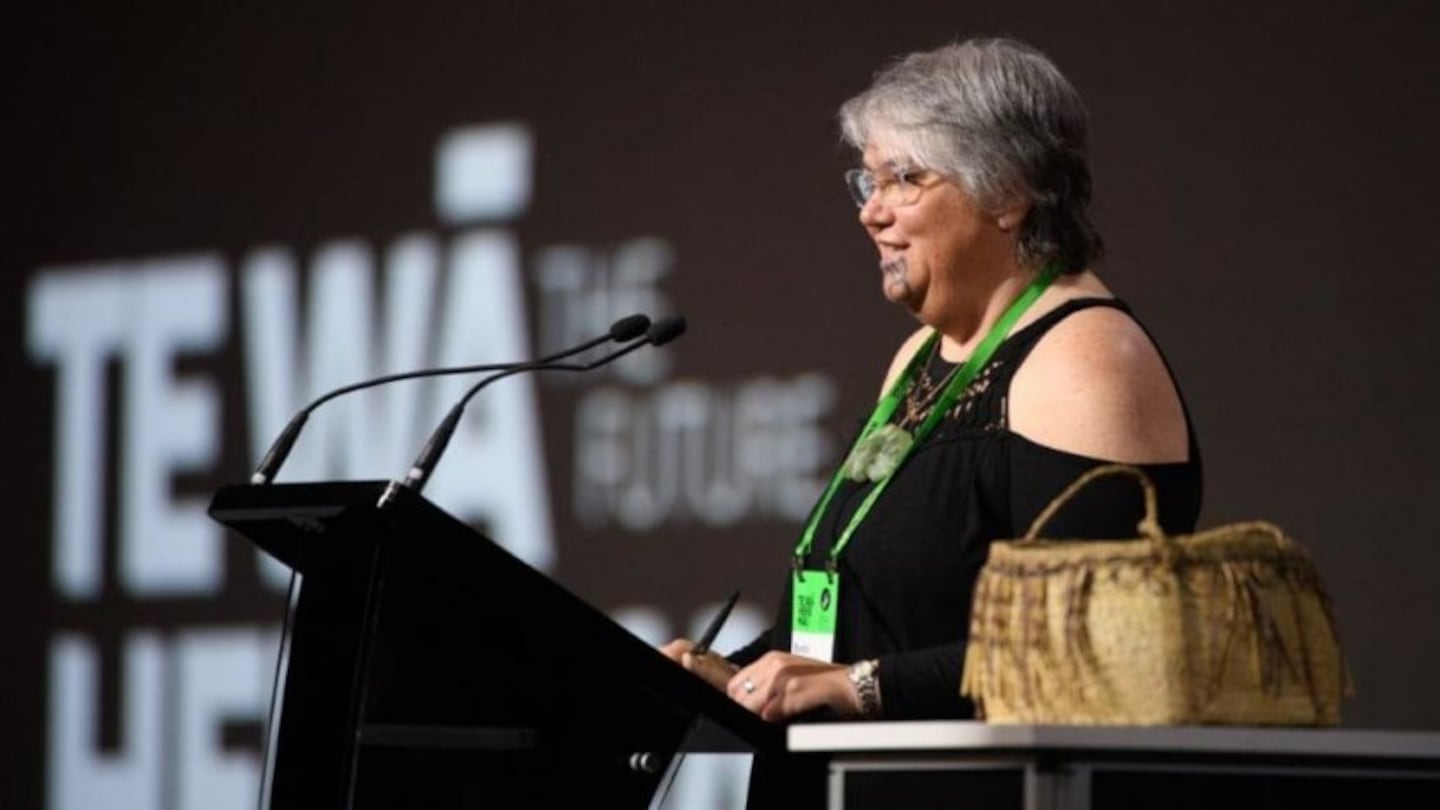Te Maruata chair Bonita Bigham says it's not too late for Māori to vote, or cast a special vote if not yet enrolled. Photo: LDR / Mark Tantrum
Māori are being urged to get their local government voting papers in as soon as possible, with voting closing at 12pm this Saturday.
Local Government New Zealand's chair of Te Maruata, the national collective of Māori elected or appointed to local government, says in many places voter turnout for Māori wards "hasn't been that great".
Bonita Bigham said she was thrilled the introduction of Māori wards had empowered more Māori to stand for councils, community boards and mayoralties but she was philosophical about early indications of low Māori voting.
"I'd love for there to be a wonderful turnout from our Māori voters as well, but we've been so disengaged from this process for so long that we can't expect a huge turnaround in our collective whakaaro or our motivation," Bigham said.
"Our critical focus before this election was encouraging our people to stand," she said.
"We've heard that the candidacy numbers for our Māori wards in general across the motu outstrip the candidacy numbers for general wards. I think that's just fantastic. I'm thrilled that we've got half the equation going."
Baseline set
This election would gauge what more needed to be done to improve Māori participation, she said.
"It sets a baseline for us to do more mahi within our communities, helping our whānau to understand that their voices matter, that our people are now in positions where we can make a difference, and that their participation in this system that we know was not designed by us or for us, actually [means] we have the ability to influence and change things up, to be more responsive to our needs and the needs of our mokopuna.
"If it doesn't happen this time around, we've got a starting point to make things different for the next election."
Māori voter turnout has so far been notably low in areas, such as Rangitīkei, where Māori have been elected unopposed to new Māori ward seats.
Bigham was herself elected unopposed to Taranaki Regional Council's new Taranaki Māori constituency.
"That could be a reflection of the fact that people think: Oh well, our people are there - we don't need to engage because we're happy with the selection.
Nanaia Mahuta thanked
"But the flip side is that competition is good because it keeps us on our toes and makes sure there are more diverse voices wanting to enter the sector."
One council bucking the trend is Ruapehu District Council, where two of the four mayoral contenders are Māori and six Māori ward candidates are vying for three new council seats.
Voting returns up to Wednesday were at 28 percent from 1930 electors in the Ruapehu Māori Ward, not far behind 33 percent returns from 6521 electors in the Ruapehu general ward.
Regardless of voter turnout, more than 50 Māori will be elected to councils and community boards around the country.
Bigham said Local Government Minister Nanaia Mahuta should be acknowledged for her work toward this milestone.
"The minister stood up to all the pushing back and all the racist rhetoric and everything else that came her way, because as minister for local government she was keenly aware of the lack of Māori voices at the table. We do have her to thank for her fortitude.
Barriers conceded
"But also all of those around the motu who for many years have been working towards this goal, who've been lobbying and advocating and submitting exactly on this kaupapa.
"There has been a groundswell and the minister was able to take all that support and desire for better representation through the systems it needed to go through - and lo and behold, we have 30-plus councils who have now taken up that opportunity.
"It was definitely something that people were waiting for, that iwi were waiting for and that Māori communities were waiting for, and the minister got it across the line for all of us.
"If whānau choose to engage this time around, that's awesome. If they're thinking about it, I'd encourage them to go ahead and do it, to make those important votes, to enrol if they haven't already enrolled, and to get out there and support our whānau who have stood in these seats."
Bigham said she was aware of some barriers to Māori participation, including the postal voting system and people not getting their papers in time to vote.
Not too late
However, she said although it was too late to post papers, it was still not too late to drop voting papers into the special bins at council offices or to enrol online or at council offices to cast a special vote.
"It is definitely still not too late to assert your mana in your rohe to make your voices heard and your choices known, and to tautoko those awesome people who have put their names forward for candidacy.
"It's not just supporting our Māori candidates, it's also about knowing who the Māori advocates and tangata tiriti are in your rohe, and encouraging friends and whānau on the general roll to be supporting them as well.
"It won't just come down to Māori voices at the council table, it will come down to people who understand - alongside our Māori voices - the things that matter to us and support our whakaaro."



